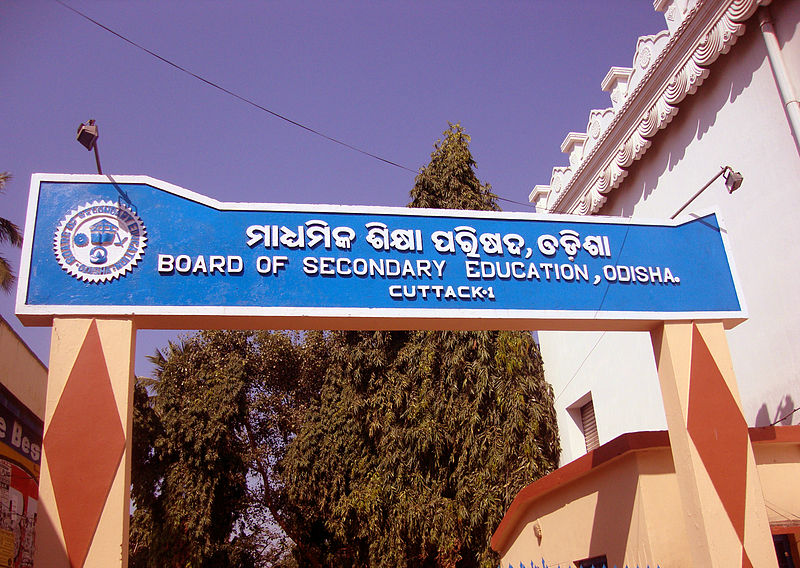COVID-19 has taken a huge toll on education across all levels. There is palpable anxiety and helplessness among children and parents. More importantly, the pandemic’s impact has not been uniform across different sections of the society. Intergenerational inequity could widen further. How do we make up for it? What can be done to fix the imbalances? Why do we need a proactive response from the state? What role can the citizenry play? For answers, Odisha Dialogues organised a webinar in which we listened to students affected with uncertainty of board exams and their parents were listened to and a panel of experts joined us for suggesting remedies.
- Prof. Furqan Qamar, Center for Management Studies, Jamia Milia Islamia University, New Delhi
- Prof. Pranati Panda, National Institute of Education Planning and Administration
- Dr. Sudha Acharya, Secretary, National Progressive Schools’ Conference
- Prof. J.S. Rajput, India Representative at UNESCO Executive Board, Former Director at NCERT
- Instead of giving all the importance to one examination, continuous evaluation ways should be introduced in schools.
- The Government should increase expenses on the infrastructure and resources related to schools for nourishing the future of the country.
- Future decisions about exams should be taken keeping in mind the situations of both rural and urban living students.
- Technological solutions need to be figured out so that rural areas get equal access to online mode of education.
- The syllabus schemes should be more skill-development oriented instead of just focusing on bookish content.
- Proper training of all the teachers for online teaching is the need of the hour.
The Context
Children who are now waiting to appear at their higher secondary (+2) board examinations have been largely confined to their homes while they were either in the midst of or were still waiting to appear in their class XI internal examinations ever since the country went into a complete lockdown mode following spurt in Coronavirus pandemic in the second part of March 2020. Online classes became the norm for most of the intervening period until the very end of May 2021. In some parts of the country, schools reopened to conduct practical examinations and other internal tests of Class XII and also to help the students get prepared for the final examination with some type of condensed interventions through the offline mode because students remained away from schools and participated in online teaching for most of the academic year. There were many reports from many rural parts of the country that online classes were also not feasible as internet penetration was poor and required gadgets were not available to participate in the online mode of teaching. Hence, attendance of face-to-face mode of teaching for some days was thought to be the way forward to improve preparedness of children for facing the higher secondary examination. Further, with the end of this academic session their school experience would be over forever and the class XII examination has been the stepping stone for their entry into higher education and a professional career. However, an unexpected sharp rise in corona virus infections in a deadly second wave forced schools and education authorities to close everything when academic tasks to facilitate holding of class XII examinations were still incomplete.
Towards the end of 2020 when corona virus cases registered a sharp decline and the whole country was almost sure that coronavirus would be gone forever, the higher secondary councils or school boards of different states, the Indian Certificate of Secondary Education (ICSE) and the Central Board of Secondary Education (CBSE) started consultations and preparations for holding the higher secondary examinations during February or March 2021. But there was a demand to postpone the examinations at least until April or May so that students can have more time for preparations and essential pre-final examination exercises could be completed without difficulties. Nobody had even the slightest inkling as to what kind of scenario would emerge in March and April 2021!
Coronavirus made a comeback in March and April 2021 which forced the Government of India to declare cancellation of CBSE’s Class X examination and postponement of CBSE’s Class XII examination. Other higher secondary Boards followed suit. A decision was made to review the situation on 1st June and make an appropriate decision regarding holding Class XII examinations. Later, demands were made by different stakeholders to cancel the examinations keeping in view the unusually high number of deaths due to an unprecedented second wave of Covid-19. This led to a lot of confusion and anxiety among students and parents all over the country. The matter landed up in the Supreme Court of India (SCI) and the SCI asked the Government of India to submit the plan regarding Class XII examinations for its scrutiny. Finally, the Prime Minister announced cancellation of the examinations on 1st June, 2021.
Just while many rounds of discussions regarding the course of action to be adopted concerning examinations were going on in the government and open debates were organised by TV channels with participation of all types of stakeholders, Forum for Odisha Dialogues organised a discussion on the matter by involving experts, parents and students to seek their opinion on the issue. The Government of India was yet to make its announcement regarding complete cancellation of examinations and all other State Governments and higher secondary Boards also took similar decisions in the interest of protecting lives of children. Post cancellation of the examination, the debate centered around how to assess the students comprehensively and fairly when there were almost no internal examinations held for an entire year in most of the schools around the country. Practical examinations and other internal assessments were also not held because of the prevailing situation.
The Core Questions that Require Resolution
However, the focus of the discussion organised by Odisha Dialogues was not confined to whether or not the examination should be held or cancelled. It included broader issues such as:
- Why one examination should have so much of importance at the end of twelve years of schooling? Does it reflect well on a credible education system?
- What will happen in case the examinations are cancelled as foreign universities and institutions may not accept the assessment criteria/ formula to be proposed by experts and finally approved by the relevant Government or the SCI?
- Why continuous evaluations and assessments are not held so that children can be freed up from focusing too much on one examination which doesn’t promote learning with fun that children can retain longer?
- What should be the way ahead for future for examinations and assessments?
“Choices are not easy, particularly when you take into account the fact that a significant majority of the students come from rural, remote and disadvantaged districts. Many of them are required to temporarily relocate themselves at times along with their families just to be within the reach of their examination centers.”
Prof. Furqan QamarCenter for Management Studies, Jamia Milia Islamia University, New Delhi
Finding Answers to Key Questions
The parents of Class XII students who are waiting to appear for Class XII examinations and couple of students of the same grade who spoke on the matter expressed that they wish the examinations to be held in the physical mode when there is no risk to the lives of any stakeholder. They stated that this examination is a benchmark in itself and influences the shape of things to come. The students have made all preparations to face the examination and their hard work shouldn’t get wasted. Moreover, any other mode of assessment will not carry equal weightage as a physical examination and marks awarded on that basis. They added that credibility of any other form of assessment will be questionable in the eyes of top academic institutions in India and outside. They said they are very much worried when they think of the possibility examinations getting cancelled.
In contrast, couple of other students said that they are highly apprehensive of safety of their lives and lives of others connected with conduct of examinations in case physical examinations are held while there is still COVID infections happening around.
Dr. Sudha Acharya, Principal of Delhi based CBSE affiliated ITL Public school expressed opinion in favour of holding physical examinations on similar grounds already expressed by a couple of students and parents each. She emphasised that a physical examination of class XII is way preferable to any other mode of assessment if examinations are not held.
Prof J S Rajput stated that if all schools had the same level of credibility, if there was same teacher-taught ratio across the system, if internal assessments were held regularly and if parents had trust in the teachers, there was no problem in not holding physical examinations. But imagining this is a utopian idea in the current state of the country. The credibility that government schools carried decades ago, is no more prevailing. The country has forty odd Boards but all of them take their own individual decisions. A teacher is the best evaluator of his / her students. But nobody trusts our teachers. There is no single statutory body that has a say over all the Boards.
There are certain Boards where the system of holding examinations and assessments is very weak. If there was a constitutionally mandated body in the field of education similar to Election of Commission of India, making decisions would have been easier and far more professional. The school education system has collapsed just like our health system which needs our attention and care. Excellence in higher education, innovations and such other higher goals can be fulfilled only if the school education system is made better. If we as a nation want to improve our learning, we need to trust our teachers, we need to pay them respect that they deserve and improve credibility of the schools.
Prof Furqan Qamar highlighted that we are aspiring to hold an examination by potentially endangering the health and safety of our children and a number of other people working across the school education system. In our country many children have to relocate temporarily to other locations along with their family members for the duration of the examination. Hence, holding examinations during the times of a pandemic is a matter of great concern. If we don’t hold the examinations, we would be jeopardising the future prospects of millions of children. This is a situation of great dilemma that we have put ourselves in by continuing with a particular system of school education.
What makes us think that our teachers are only good enough to teach our children but not trustworthy enough to evaluate them? We allow our teachers to teach in all sorts of situations and circumstances; when it comes to evaluating the students, we start applying all specific standards. We trust technology in teaching but look at it with suspicion in evaluation. We haven’t yet fully realised the capability of technology-supervised evaluation system. The logic behind such a dichotomous approach is not well understood. We also continue with the idea of holding examinations for millions of children for a number of subjects during a particular time period. This puts a huge burden on our system and resources. We believe that the credibility of an examination system can be upheld only if there are certain checks and balances and only if it is supervised by human beings. There is a need to break away from such an archaic system that cries out for an overhaul.
When there are elaborate entrance examinations to get an entry into higher education system, what is the role of a terminal examination like the Class XII Board examination. Hence, it is high time that we turned our attention to a teacher evaluated and school supervised continuous and comprehensive internal assessment system. There may be certain dangers in this kind of a system leading to grade-flation and suspicion in credibility of the assessment system. But such a scenario is already around in different shades for a few decades now. Such dangers can be eliminated by different control measures by assessing students across many parameters ranging from curricular to co-curricular and extra-curricular engagements. On the contrary, schools will make amends to build their credibility over a number of years once they realise that in the long run quality and credibility matters. Little changes here and there would bring a whole lot of positive changes for the system from all ends. Instead of making examinations a nightmarish experience we must bring changes to make it fun for all.
Prof Pranati Panda underlined that the school education ecosystem is too diversified and there are large pockets of disparity within the system itself. We are living in an era of outcome-based culture which makes us focus more on learning outcomes and its manifestation through an elaborate and inflexible board-examination based assessment process. It’s deeply rooted in our socio-cultural and political mindsets. An ambience of trust-deficit is deeply embedded into our school education system where we don’t trust anyone. We have become liberal in adopting different learning models, but evaluation and assessment is still lying wrapped in the past.
Time has come for us to learn from international experience on conduction of high-stake public examinations by prioritising health and life of stakeholders and consider adopting the same in our country. The very thinking that a single examination sets the benchmark for life and career ahead is clearly a colonial remnant and needs to be shaken off without further delay. The New Education Policy (NEP) 2020 is exactly talking about adoption of an alternative system of evaluation that is continuous and comprehensive which is being discussed for a long time. Adopting this would restore some amount of autonomy and trust in schools and teachers. This would also help our children and parents get away from an examination driven schooling system. The examination system of the future should assess competency, creativity, analytical thinking, problem solving skills, conceptual clarity, etc. rather than just assessing knowledge and information.
“Policy makers are highlighting that the most significant aspect is to generate positivity amongst the students and parents to create a self-learning culture and different modalities of learning.”
Prof. Pranati PandaNational Institute of Education Planning and Administration
The Suggested Way Forward
The recommendations with regard to immediate, medium-term and long-term solutions are as follows.
- Decisions for future have to be taken after considering the interests of all segments of the society that addresses equity in assessment. Students with better means might have learnt better throughout the last year that those who live in rural and remote areas of the country.
- In the medium to long term, we must commit to invest more in education ranging from infrastructure to human resources.
- We must opt for technological solutions to both learning and assessment issues. It can ease off the logistics and rigmarole connected with conduct of physical examinations.
- Move away from a single big event evaluation of students to continuous and comprehensive evaluation and assessment system that tests a broad range of skills, competencies and capabilities.
- Multiple models of conduct of assessment and evaluation may be thought of keeping in view diversity of the country.
- Exposing teachers to optimise use of technology platforms to carry out tasks related to teaching, learning, training, assessment and evaluation.
- School syllabus must be aligned with the competitive examinations to the maximum possible extent in order to minimise stress among students which comes from attending coaching classes.
- Shifting the teaching learning practices from content based to competency or skill-based methods that includes projects, research assignments, internships, creating documentaries, presentations, etc.
- Teacher training institutions must be strengthened and transformed in order to create a platform for a big shift into the future. Investments in teachers is the cornerstone of building a robust school education system.


